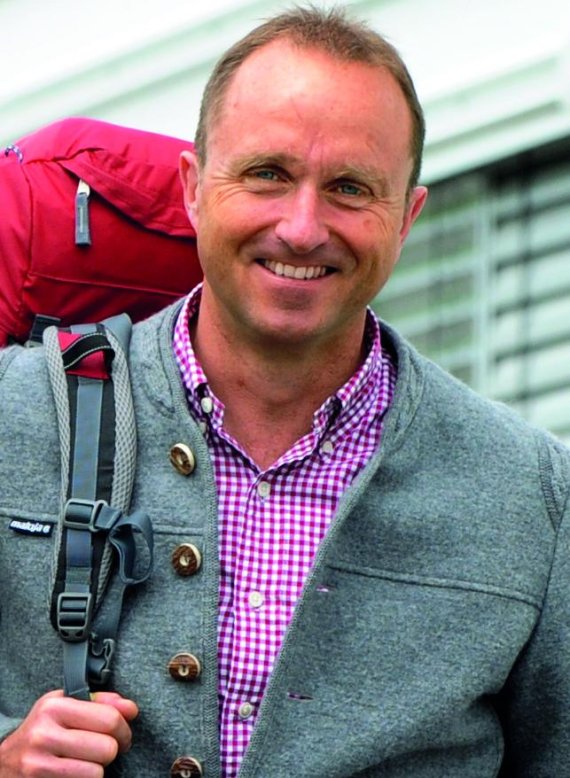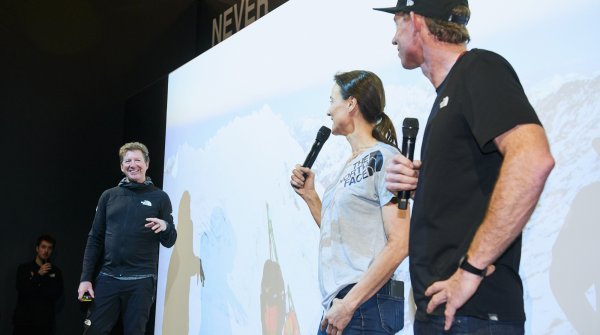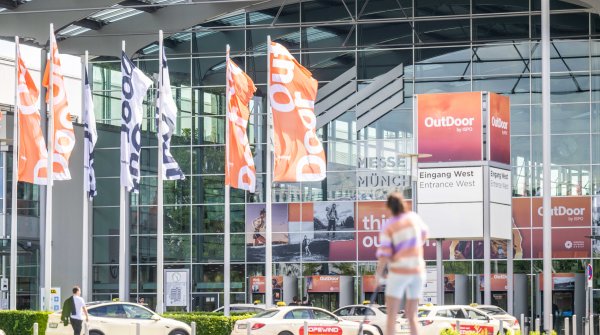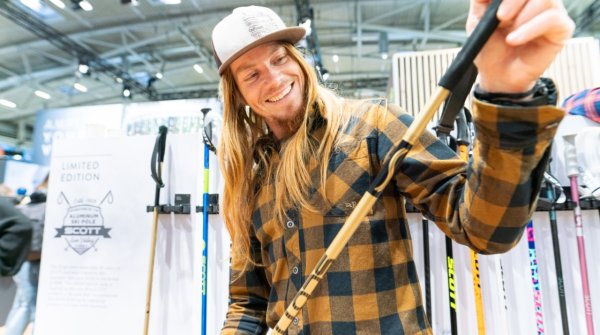How do you keep a traditional company like Deuter with a narrow product range and a clear focus on specialist retailers on track in times of digitalization? How do you hold your own against players like Amazon, which Deuter expressly does not want to supply?
We asked Martin Riebel. He has been Managing Director of Deuter and the Schwan Stabilo Outdoor Group, to which the company has belonged since 2006, since 2013.
ISPO.com: Mr. Riebel, the European Court of Justice has just ruled on the permissibility of resale via platforms and marketplaces - a dispute that Deuter, among others, helped initiate years ago. How do you assess the current situation?
Martin Riebel: The issue is very complex. Selective distribution agreements are very different - once between the industries and of course also among themselves. Here, we can only assess our own situation, where the Frankfurt Higher Regional Court ruled in favor of us in the legal dispute against Cortex Power in the second instance to stop sales via the Amazon platform in accordance with our selective distribution agreement. We still do not want to sell via Amazon and have also regulated this in our contracts.
Do you sell to online-only retailers?
No, we do not sell to online-only retailers. Backpacks are products that require a lot of consultation. That's why we have a selective distribution strategy, which allows the end consumer to have the product customized through our brick-and-mortar retailers, but also to order online through them.
What do you think of the new marketplaces that are now also emerging in the retail sector? What does your online strategy look like?
If at some point we end up putting our products on the marketplaces of good retailers, I have no problem with that. The point is to be able to offer the customer a wider range of products, to go into more depth. We just don't want a bazaar like Amazon, for example.
We ourselves have chosen the strategy of not operating our own web store. Our store runs through our partner Commerce Connector , which means that all products in our store are sold through selected retailers. This is going very well, and we are seeing disproportionate growth rates here. But: The retailer does the business - otherwise we would contradict ourselves. We still see retailers as the extended arm to the customer.

What challenges are currently at the forefront of retail and industry? How has retail changed recently?
Both - retail and industry - have to clearly distinguish themselves. In relation to the outdoor market, which is still quite young, this is definitely a challenge, because today there is more and more mixing, including sports and fashion. But we think innovation is the key. We want to see a clear area of application in sports for every product, and that means that function is always in the foreground.
If our backpacks are then also worn by students in the city, we don't prevent that. But we don't make retro collections with outdated carrying systems that are currently in demand in fashion, although with our history we easily could.
We don't take the opportunistic route, and as a family business we don't have to. We are not driven by our quarterly sales. Basically, I strongly believe in the future of outdoor: with our office sedentary lifestyle and growing cities, outdoor and being outdoors are becoming more and more important.
What changes do you expect in the next few years?
Compared to one or another very large sports brand, we see retail as our route to the end consumer in the future as well. I wrote my diploma thesis in 1988, and after that, specialist retailing should no longer have existed from 1995 onwards. That means everything is not changing at all as much as it is currently hyped. Nevertheless, retail will continue to evolve, and problems for it will not only be caused by digitalization but also, for example, by succession.
But the digital element will increase strongly, and this is where retailers are investing massively right now. Our major partners in particular are getting better and better. However, there will be massive consolidation here towards the fastest and best. The future is the seamless combination of experience and good advice on the floor, information and easy access via the Internet, and a high, logistical level of service. We have to adapt to this as a brand.
How is the digital transformation impacting your business?
We are already investing a large part of our marketing budget digitally. We offer digital shopping via our website to the end consumer in cooperation with selected retailers via Commerce Connector, and we offer our retailers a round-the-clock ordering option via our B2B platform.
What challenges do you see with regard to digitalization?
Digitization poses challenges for retailers and industry alike. Certainly there will be retailers who will have problems if they don't develop further. Of course, selling via the Internet is here to stay, but that doesn't mean that stationary retail is threatened by it.
In the future, consumers will continue to look for the shopping experience on the shop floor, will be happy to receive advice - but will also increasingly order on the move. In other words, digitization also offers opportunities. Social media in particular can be used today to address the end consumer much more directly. We are experimenting a lot there and have set up our own online marketing team.
The end consumer is much better pre-informed today thanks to the Internet, and that presents new challenges for both the salesperson on the floor and sales via the Internet. That's why we take our training mission more seriously than ever - both stationary and digital.
Does digitalization also affect production?
We have been exchanging data with our production for a long time, but in the future we will work on a common platform and invest heavily in even better networking. The exchange of information is becoming increasingly digital, right through to 3D design. Ultimately, this is also about becoming more efficient.
We have the special situation that we have had a supplier for our backpacks for over 20 years. It is based in Vietnam and works exclusively for us. However, the wage increase in Vietnam is about 12 to 13 percent per year, and we cannot pass on these costs but have to try to absorb them through greater efficiency.
To achieve this, we have started a project with our production plant in Vietnam and the Fraunhofer Institute. A new production hall is currently being built.
How close are you to the customer - do you integrate feedback from your customers into product development?
One of our most important principles is to have enthusiastic outdoor athletes within the product development department who incorporate their personal experiences within the community directly into the product.
In addition, we work very closely with mountain guides and athletes who are regularly in house to make suggestions for improvement. We also take feedback about buyers and sellers from the specialized trade very seriously. And we also receive direct feedback from end users. From this mix of information, we are constantly trying to develop further.
What changes do you expect to see in the industry over the next few years?
It depends on the sector. In contrast to the classic sports market with dominant, large players, there are still many small brands in the outdoor sector. In Italy alone, we have more than 200 outdoor brands, but they no longer differ significantly. This means that in the future, the industry will have to pay more attention to sensible product innovations, service innovations and delivery capability. There will undoubtedly be consolidation, possibly even more so than in retail.
They only have two suppliers in total. One for backpacks in Vietnam, the other produces the sleeping bags and is located in China. That's unusual! Is this also about sustainability?
Sustainability is about the triad between economy, ecology and social sustainability. Here we have been playing in the Champions League for years when it comes to the social standards of our production in Vietnam. We have been a member of the Fair Wear Foundation for many years, since the first audit in the highest category "Leader Status" and received the "Best Practice Award" for the practical implementation of the reduction of overtime.
In addition, we are a Bluesign partner and a member of the German Textile Alliance for Sustainability. It is clear that this supply chain relies on mutual trust. If one makes mistakes, the other feels it. That's why we don't have price negotiations in that sense - we always have to come to some kind of agreement. Just like in a good marriage.
What do you expect from the trade shows in terms of digitization?
Good question. ISPO Munich in particular is very active in providing retailers and the industry with a range of services that goes far beyond the provision of trade show square meters. These digital efforts will also be necessary to ensure that the trade shows continue to be one thing in the future: an international communication platform for meaningful dialog between industry, retail, and increasingly also end consumers.
How is the current season going so far? What is the feedback from your customers?
We are very satisfied with the current season's progress. The Spring-Summer 18 collection is about to be delivered and has been very well pre-ordered by retailers - especially internationally with a good double-digit increase. We have worked on new color concepts - away from the typical German block designs to more monochrome colorways.
Communication has also become more emotional, and all this has brought us very good feedback, especially in the USA and the Scandinavian countries. We are proud of that. As far as the current sell-out in retail is concerned, we are at plus-minus zero. We expect more momentum next year, driven primarily by product innovations such as the even more comfortable Futura Sensic carrying system.

 OutDoor by ISPOOutDoor in transition
OutDoor by ISPOOutDoor in transition
- Awards
- Mountain sports
- Bike
- Fitness
- Health
- ISPO Munich
- Running
- Brands
- Sustainability
- Olympia
- OutDoor
- Promotion
- Sports Business
- Textrends
- Triathlon
- Water sports
- Winter sports
- eSports
- SportsTech
- OutDoor by ISPO
- Heroes
- Transformation
- Sport Fashion
- Urban Culture
- Challenges of a CEO
- Trade fairs
- Sports
- Find the Balance
- Product reviews
- Newsletter Exclusive Area
- Magazine





